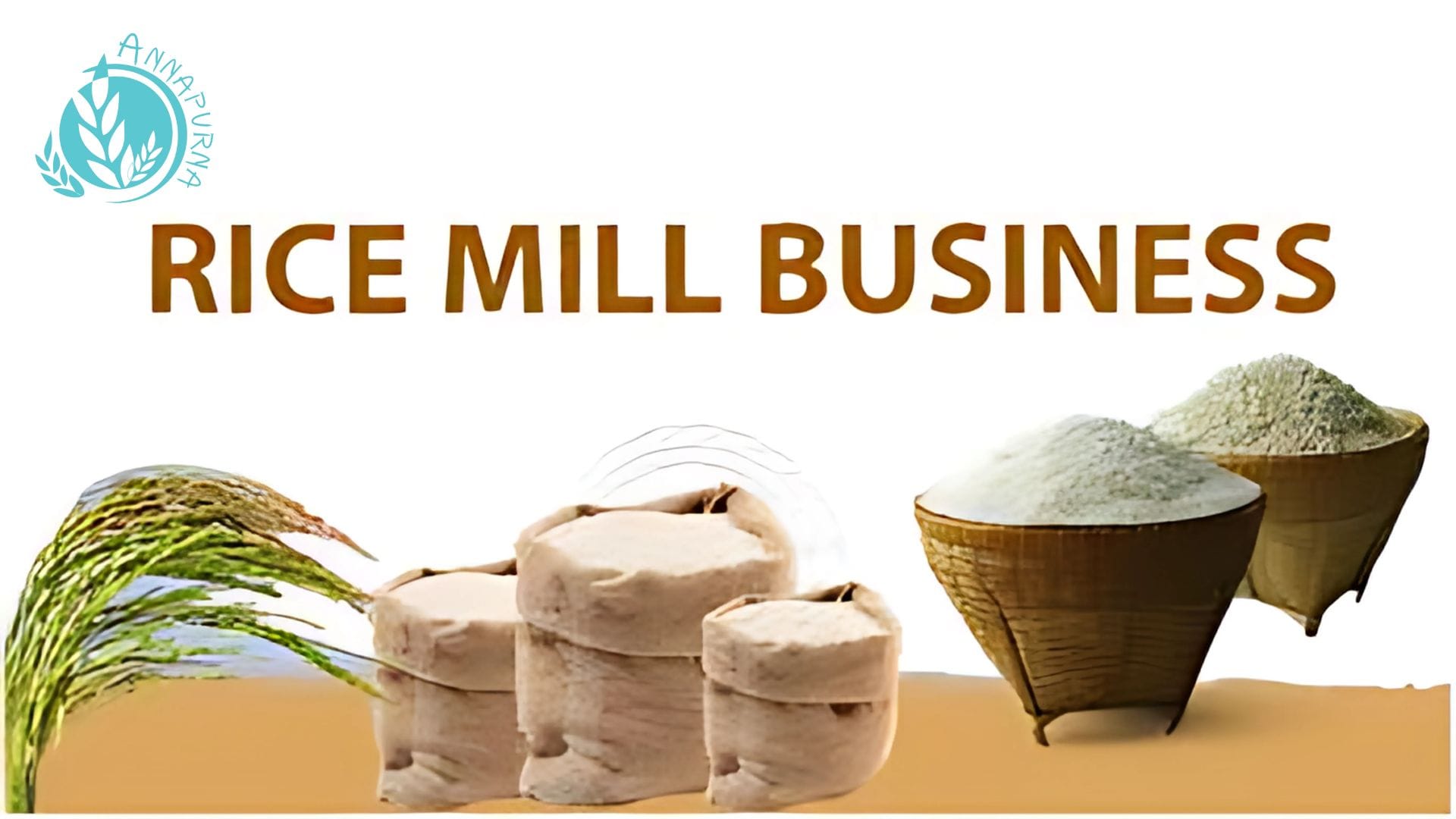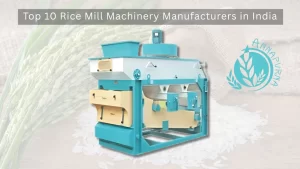Starting a rice mill business in India can be a highly profitable venture, given the country’s vast agricultural landscape and high demand for rice, which is a staple food for millions. However, as with any business, understanding the initial investment and costs involved is critical to making informed decisions. If you are looking to venture into this business, you must know about the startup costs, the equipment needed, and other operational expenses. At Annapurna Agronics Machinery Pvt. Ltd., we aim to provide insights into the rice mill business startup cost and guide you on how to set up a successful rice milling plant.
Also Read :- Rice Mill Machinery Manufacturer
Understanding the Rice Mill Business in India
Rice milling involves processing paddy into polished rice, a task that requires significant machinery and infrastructure. India is the world’s second-largest producer of rice, and the demand for processed rice is consistently high, both for domestic consumption and export. Therefore, setting up a rice mill can be a rewarding investment, but you must carefully plan the costs involved to ensure profitability in the long term.
Key Factors Influencing the Startup Cost of a Rice Mill Business
- Type of Rice Mill (Small, Medium, or Large Scale)
The scale of your rice mill plays a crucial role in determining your startup costs. Generally, rice mills in India fall into three categories:- Small-Scale Mills: These mills have a capacity of processing a few tons of paddy daily and are ideal for small entrepreneurs. The setup cost for such mills can range from ₹10 lakhs to ₹25 lakhs.
- Medium-Scale Mills: These mills process a higher volume of paddy, typically ranging between 10 tons to 50 tons per day. A medium-scale mill setup can cost anywhere between ₹25 lakhs to ₹50 lakhs.
- Large-Scale Mills: These mills are fully automated and can process large volumes of paddy (above 50 tons per day). They require substantial investment, and the costs can range from ₹50 lakhs to ₹5 crore or more, depending on the level of automation and the size of the mill.
- Small-Scale Mills: These mills have a capacity of processing a few tons of paddy daily and are ideal for small entrepreneurs. The setup cost for such mills can range from ₹10 lakhs to ₹25 lakhs.
- Machinery and Equipment Costs
One of the most significant expenses for setting up a rice mill is the machinery. Essential equipment includes:- Pre-cleaning machines
- Rice hullers
- Polishing machines
- Separators
- Destoners
- Packaging machines
- Pre-cleaning machines
- The cost of machinery varies based on the scale and technology of the mill. On average, machinery costs for a small rice mill may range between ₹5 lakhs to ₹15 lakhs, while for medium to large-scale mills, the cost can go upwards of ₹50 lakhs or more. At Annapurna Agronics Machinery Pvt. Ltd., we offer a wide range of high-quality rice milling machines designed to meet the diverse needs of your rice milling business.
- Land and Infrastructure
Another major cost factor is the land on which the rice mill will be set up. The location of your mill affects not only the cost of land but also logistical factors like transportation and access to raw materials. Typically, a rice mill requires a space of 2,000 to 5,000 square feet. In rural areas, land acquisition might cost between ₹5 lakhs to ₹20 lakhs depending on the location, but in urban areas, land costs can be significantly higher. - Utilities and Installation Costs
Utilities such as water, electricity, and labor are essential for the smooth functioning of a rice mill. Additionally, you will need to account for the cost of installing machinery and setting up a functional infrastructure. Installation charges can range between ₹2 lakhs to ₹10 lakhs, depending on the complexity of the machinery and the infrastructure. - Raw Material and Operational Costs
The cost of raw materials (paddy) and operational expenses should also be taken into account. You will need to secure a steady supply of paddy, which may require establishing relationships with suppliers or farmers. The operational costs include maintenance of the machinery, labor wages, packaging materials, transportation, and more. A rice mill can operate with a workforce of 10 to 50 employees, depending on the size of the mill.
Other Hidden Costs
- Marketing and Branding: Setting aside a budget for promoting your brand can help you establish your presence in the market.
- Licenses and Permits: Obtaining necessary licenses such as FSSAI registration, GST registration, and factory licenses is required to operate legally in India.
- Contingency Fund: It’s wise to allocate a portion of the budget for unforeseen expenses during the setup process.
Breakdown of Startup Cost Estimate
Let’s summarize the estimated costs for setting up a rice mill business in India.
| Cost Category | Small Scale | Medium Scale | Large Scale |
|---|---|---|---|
| Machinery & Equipment | ₹5 Lakhs – ₹15 Lakhs | ₹20 Lakhs – ₹50 Lakhs | ₹50 Lakhs – ₹1 Crore+ |
| Land & Infrastructure | ₹5 Lakhs – ₹20 Lakhs | ₹20 Lakhs – ₹50 Lakhs | ₹50 Lakhs – ₹2 Crore+ |
| Utilities & Installation | ₹2 Lakhs – ₹10 Lakhs | ₹5 Lakhs – ₹15 Lakhs | ₹10 Lakhs – ₹50 Lakhs+ |
| Raw Materials & Operations | ₹5 Lakhs – ₹10 Lakhs | ₹10 Lakhs – ₹30 Lakhs | ₹30 Lakhs – ₹1 Crore+ |
| Other Costs | ₹1 Lakhs – ₹5 Lakhs | ₹5 Lakhs – ₹15 Lakhs | ₹10 Lakhs – ₹50 Lakhs+ |
| Total Estimated Cost | ₹10 Lakhs – ₹25 Lakhs | ₹25 Lakhs – ₹50 Lakhs | ₹50 Lakhs – ₹5 Crore+ |
Conclusion
The startup cost for a rice mill business in India depends on various factors, including the scale of operation, machinery, land, and utilities. While small-scale mills can be set up with a budget of ₹10 lakhs to ₹25 lakhs, larger, automated mills will require substantial investment, potentially exceeding ₹5 crores.
If you are considering entering the rice mill business, it’s crucial to consult with experts and partners who can guide you on the best machinery and setup for your needs. At Annapurna Agronics Machinery Pvt. Ltd., we offer state-of-the-art rice milling machinery and solutions tailored to your business requirements. Our team is committed to providing the best advice and support to help you make a successful start in the rice milling industry.


